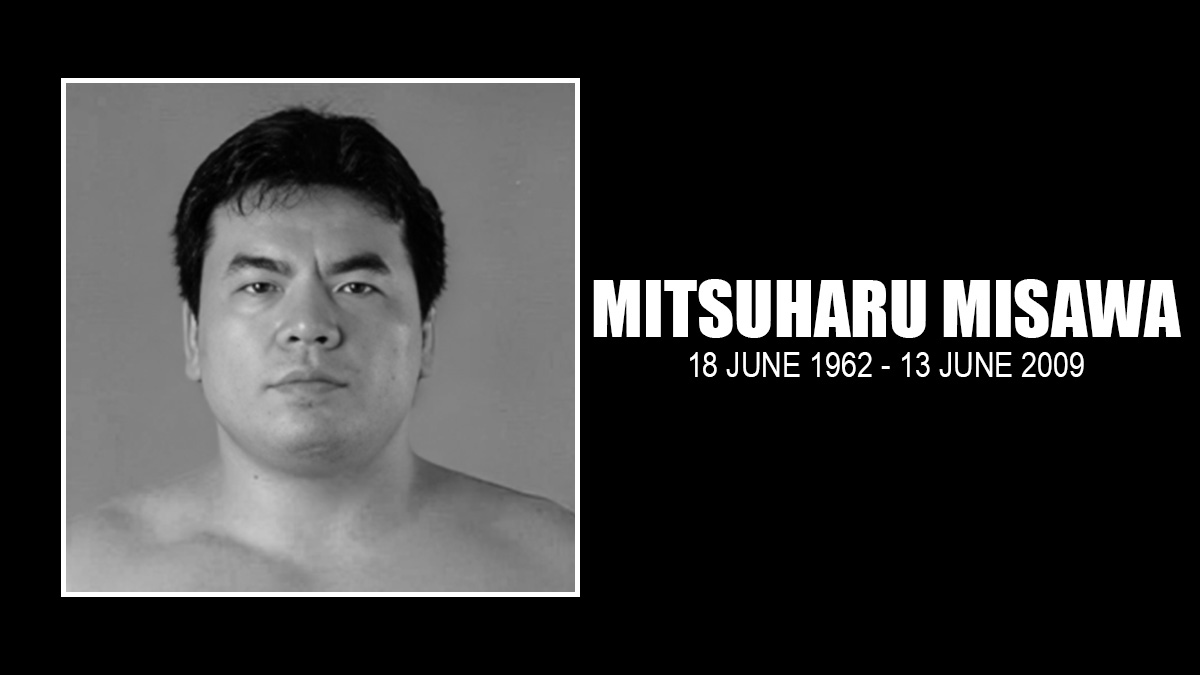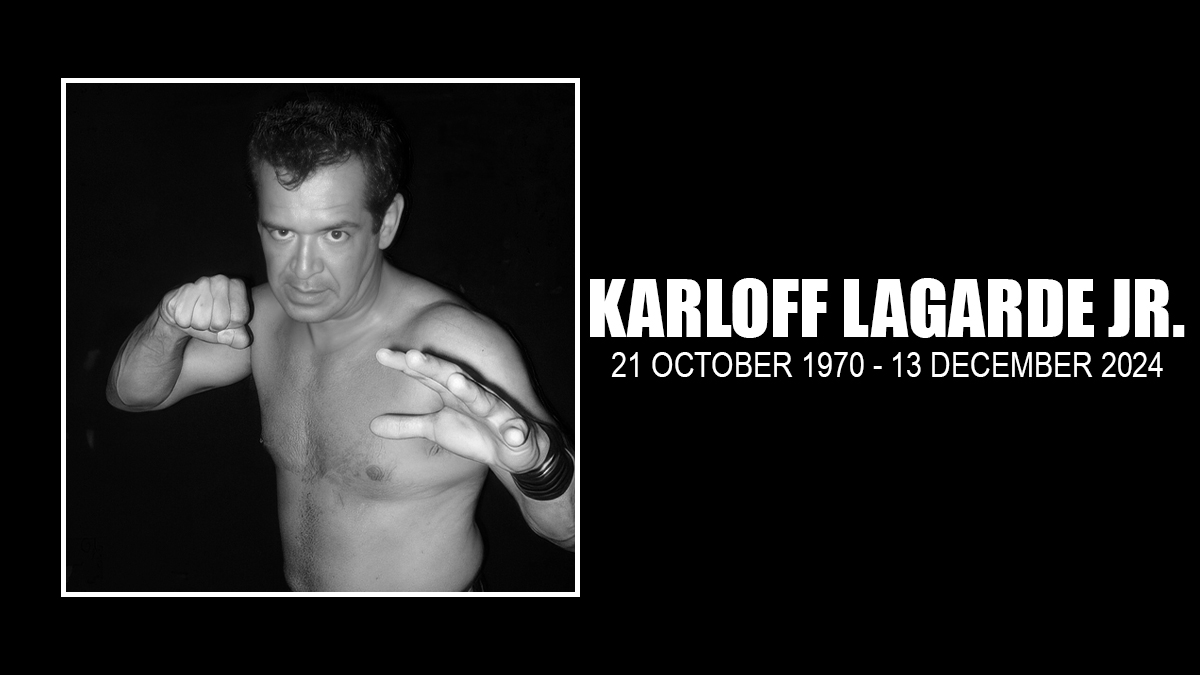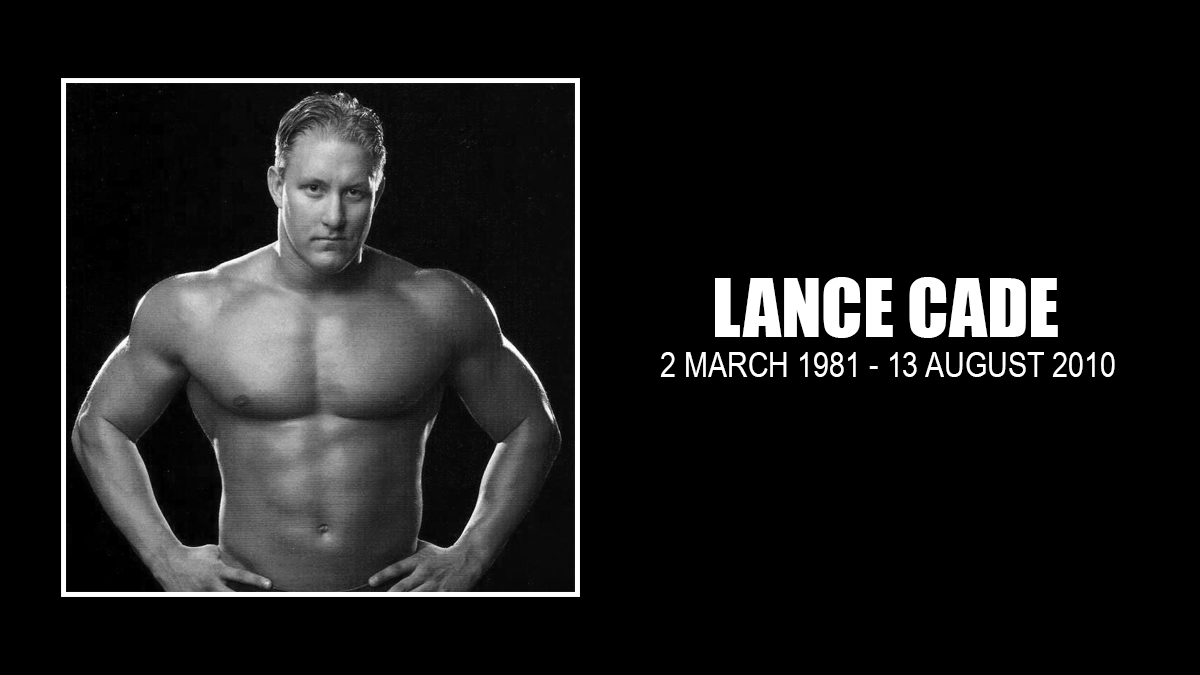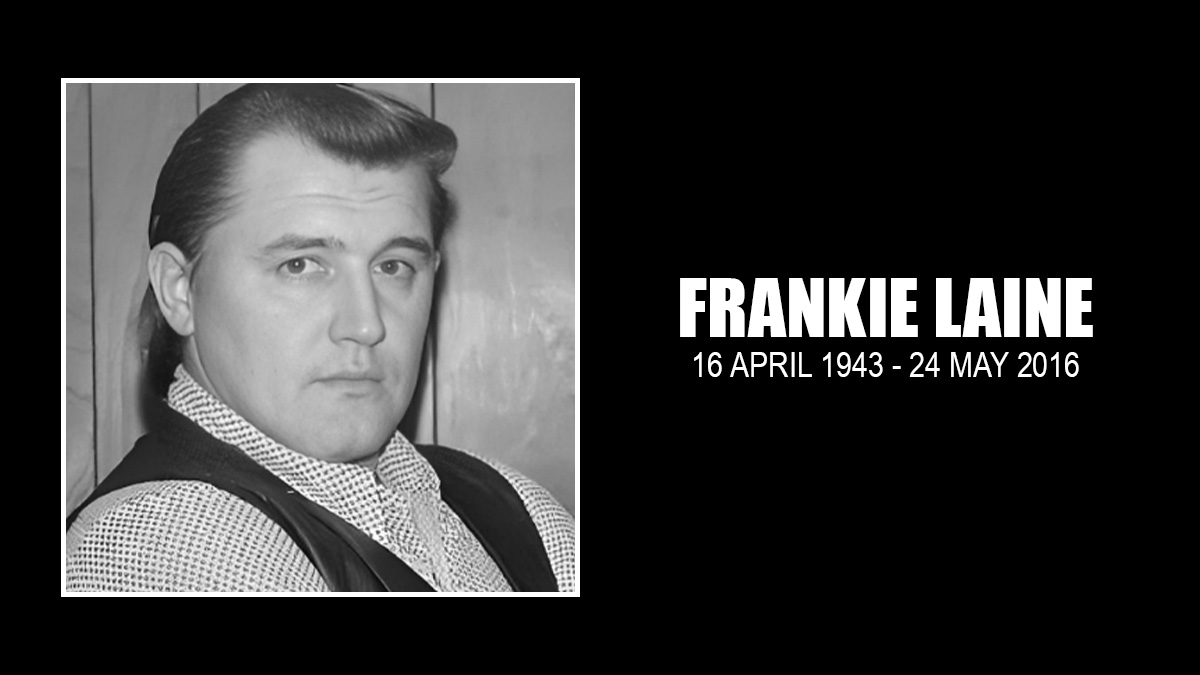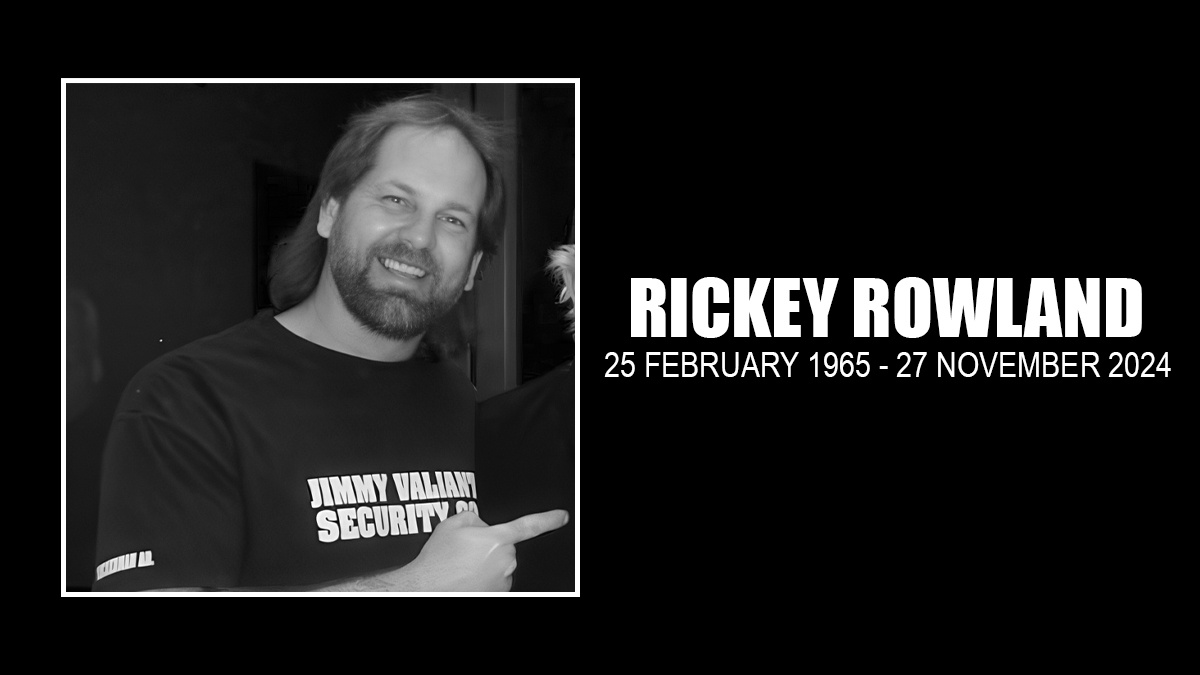Mitsuharu Misawa, whom many considered the best wrestler in the world during the 1990s, shockingly died earlier today after taking a back suplex from Akitoshi Saito during a Pro Wrestling NOAH match. He was 46.
Misawa, who was teaming with Go Shiozaki against Saito and Bison Smith, took what seemed to be a routine back suplex from Saito when Misawa failed to move again after taking the bump.
The match was immediately stopped around 8:45 p.m., as doctors and nurses gave CPR to Misawa, in a scene reminiscent of when Owen Hart died in the ring during a WWE pay-per-view in May of 1999. The Japanese media is reporting that Misawa was purple while he was receiving CPR.
All the wrestlers on the show surrounded the ring as the crowded softly chanted “Misawa, Misawa…”
Some media outlets in Japan are reporting that he suffered a heart attack, but this has not been confirmed and may not be known until an autopsy is performed. The official time of death was 10:10 p.m. local time as he was en route to a local hospital although he most likely died in the ring.
The match was part of a NOAH show at the Hiroshima Green Arena in Naka-ku, Hiroshima, Japan. The show was not continued after the accident.
Chris Hero, who is on tour with Pro Wrestling NOAH, commented hours after the accident on his Myspace blog. “The moments at ringside felt an eternity. Never, in my life, have I wanted the fighting spirit to jump into someone’s being more than I wanted tonight.”
Hero commented that it was clearly an accident and “no one is at fault.”
Born June 18, 1962, Misawa died a few days short of his 47th birthday. He was first discovered by All Japan Pro Wrestling owner Shohei “Giant” Baba while Misawa was a national amateur wrestling champion while in high school. Misawa was tained by Dick “The Destroyer” Beyer, Shohei Baba, and Dory Funk, Jr. and made his debut for All Japan on August 21, 1981 against Shiro Koshinaka.
Misawa was a skinny, high flying wrestler, who’s debut coincided with New Japan Pro Wrestling’s Tiger Mask. Owner Baba was hopeful from early on that Misawa would help carry the company in the future. Misawa was re-introduced as Tiger Mask II in 1984, after All Japan bought the rights to the gimmick from New Japan.
He slowly started to build experience in the ring, having won his first title on August 31, 1985 when he defeated Kuniaki Kobayashi for the NWA International Junior Heavyweight title. The two would feud over the title for the next year until Misawa, as Tiger Mask II, forfeited the title after entering the heavyweight division.
He would work occasionally in the United States, most famously with the NWA and AWA. In April 1986, Tiger Mask II and Giant Baba would form a tag team for the First Annual Jim Crockett Sr. Memorial Cup, taking the pin in a match with Magnum TA and Ron Garvin. Also, he worked the same month for AWA’s Wrestlerock, defeating Buck Zumhoff.
He found his first success as a heavyweight when he and Jumbo Tsuruta won the PWF World Tag Team titles on July 3, 1987 from Stan Hanson and Ted Dibiase. They would drop the belts back to Hanson and Dibiase on July 11.
Kenta Kobashi, who would go on to be one of Misawa’s top rivals during his career, would team team with Tiger Mark II to win the All Asia Tag Team titles on April 9, 1990 defeating Doug Furnas & Dan Kroffat.
In 1990s, New Japan and All Japan would open relations for the first time, as Tiger Mask II was part of a New Japan Pro Wrestling show in February 1990, the first time All Japan wrestlers appeared on a New Japan show. This led up to a joint Tokyo Dome show on April 13 which featured the WWE. The main events saw Hulk Hogan vs. Stan Hanson plus Andre the Giant and Giant Baba teaming for the first time against Demolition. Lower on the card was a match that many had their eye on when Tiger Mask II faced Bret Hart. The two wrestled to a 20-minute match that most considered a disappointment. The show drew weakly, and the idea was never replicated.
A month later, on May 17, during a tag match with Toshiaki Kawada, Tiger Mask II unmasked to reveal what everyone already knew, that Mitsuharu Misawa was under the mask. Misawa and Kobashi would vacant the All Asia Tag Team titles when Misawa wanted to concentrate on single matches.
Unlike the first Tiger Mask, Satoru Sayama, who struggled sans mask, Misawa became an instant main event star. He would make his first mark as a heavyweight single when he defeated the man who was All Japan’s top star for the 1980s, Jumbo Tsuruta, on June 8. Many looked at the match as a changing of the guards, with Baba officially placing Misawa in as All Japan’s top star.
He would then challenge Stan Hanson for the newly formed All Japan Pro Wrestling Triple Crown Heavyweight Championship shortly after but fell short of winning the belts. He would get another shot at the titles in April 1991 against Tsuruta, but would fail again. Meanwhile, he and Toshiaki Kawada would capture the All Japan World Tag Team titles from Terry Gordy and Steve Williams in July 1991.
Although his singles win over Tsuruta in the summer of 1990 was considered a major mark, Misawa one-upped it when during a tag team with Kawada against Akira Taeue and Tsuruta, he forced Tsuruta to cleanly submit. The rest was history.
He would finally meet his goal of winning the Triple Crown Heavyweight title on August 22, 1992, defeating Stan Hanson. He would hold the title for almost two years, dropping it to Steve Williams on July 28, 1994. He would win the titles a total of five times during his career, later defeating Kenta Kobashi twice, Vader and Hanson again.
He would win the All Japan World’s Strongest Team Team League on three occasions teaming with Kawada in 1992, Kobashi in 1993 and 1994.
His single and tag matches with Kenta Kobashi and Toshiaki Kawada during the mid-1990s were brutal and classic. The stiffer style would change the way wrestling was done in Japan, as well as shared with promotions like Ring of Honor. The original ECW would often use wrestlers who knew and used the stiffer Japanese style during their start-up including Steve Williams, Terry Gordy and Johnny Smith.
All Japan Pro Wrestling was experiencing the most success a single promotion had seen in the history of Japan wrestling. Before the Internet, the matches involving, Misawa, Kawada and Kobashi were a hot commodity in the underground tape trading world.
The brutality of the matches would really show their results years later when all three men suffered from pain and injury resulting from those matches.
Success would take an interesting twist following the death of All Japan owner Giant Baba on January 31, 1999. Baba’s widow, Motoko Baba, would take ownership of the company and name Misawa new president on May 7. Conflict would soon follow with Misawa being removed from his position on May 28, 2000.
The developments that followed would change the scope of Japanese professional wrestling till this day. On June 17, Misawa and 24 current All Japan wrestlers appear at a news conference to announce their departure and formation of a new promotion. Kenta Kobashi, who was the current Triple Crown champion would be among those who followed. Toshiaki Kawada was the only major name to stay with All Japan.
In a 2000 piece for SLAM! Wrestling, reporter John F. Molinaro compared Misawa and Kobashi leaving All Japan to Ric Flair leaving WCW in 1991. “Misawa is All Japan,” Molinaro wrote.
Pro Wrestling NOAH would hold their first show on August 5 at the Differ Ariake in Japan. Misawa would become Noah’s first Global Honored Champion (GHC) on April 15, 2001, when he defeated Yoshihiro Takayama in a tournament final. He would win the title two more times, last winning it on December 10, 2006 over Naomichi Marufuji. He would drop it on March 2, 2008 to Takeshi Morishima.
He would defend the title in the United States on Pro Wrestling Iron and Ring of Honor shows in August 2007. It was a joy for those in attendance but it was obvious this was not the Misawa of old. He was slower, weaker and starting to grow a gut. But the fans still wanted to see him, equivalent to Ric Flair never wanting to retire.
Misawa’s career saw numerous five star matches, as well as winning Japan Wrestling MVP on numerous occasions as well as Wrestling Observer‘s Wrestler of the Year award in 1995, 1997 and 1999.
The status of ownership and leadership for Pro Wrestling NOAH will be announced shortly.
